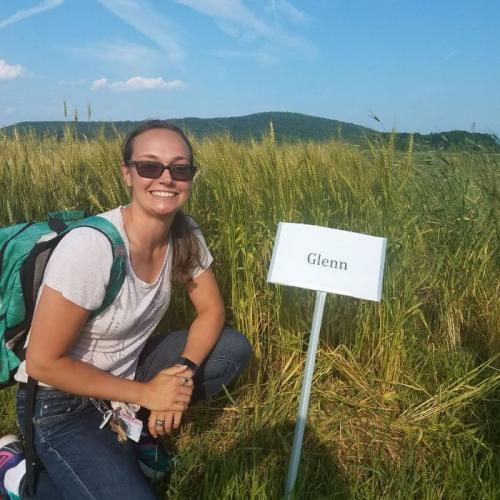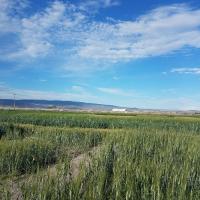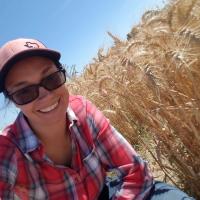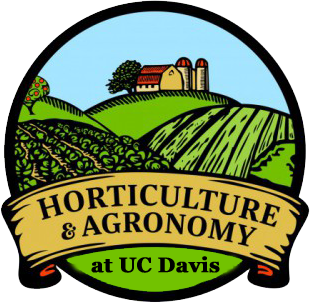
Plant Breeding Center Student Spotlight: Priscilla Glenn

Howdy! My name is Priscilla Glenn and to put it simply, I am a Texas gal whose early interest in genetics led her to the expansive world of plant breeding. My journey into the plant sciences was accidently kickstarted by my younger brother. When I was in second grade, I distinctly remember learning the Punnett square and that brown eyes are dominant over blue. Raising my hand, I asked why and how my brother had blue eyes then, if both my parents had brown. I was given an elementary answer, but from that time period on, I was hooked on genetics. This interest continued to grow during high school when I was introduced to Gregor Mendel and discovered what I consider the perfect combination of both plants and genetics.
UC Davis first came on my radar during my upperclassman years at UT Arlington. While I was unable to major in an agriculture-related field at UT Arlington, I participated in plant science internships every summer at various institutes including the Danforth Plant Science Center and Cornell University. From maize ribo-seq analysis to pathogen-insect-plant host interactions, I saw first-hand the expansive application of the plant sciences, and grew deeper in love with the field. From these experiences, I decided I specifically wanted to continue my education in plant breeding in order to utilize genetics to improve the world’s food system.
To that end, each of my mentors recommended UC Davis as one of my top options and fast forward, now I am a fourth year Ph.D. student in Horticulture and Agronomy honored to study under Dr. Jorge Dubcovsky. It was definitely the right choice. From my fellow students, to my field and statistical courses, to the perfect combination of lab and field work, my time at UC Davis has truly exceeded my expectations.

I especially enjoy my research which combines genetics, plants, and my overarching goal of improving the global food system. Over 700 million tons of wheat are grown annually across the globe, but further increases in yield are required for global food security. Increasing yield is complicated because grain yield is influenced by multiple traits. One way to simplify yield is to separate it into individual yield-components. This inspired me to work on identifying and characterizing novel genes that improve spikelet number per spike. Spikelets are the main component of the spike, or head, of wheat, and alternate back and forth up the spike. Each spikelet is composed of florets which will develop into grain, determining the total number of grains produced by each spike. Thus, by increasing the total number of spikelets, theoretically the total number of grains, aka yield, increases.

While increasing yield is my main focus, my knowledge base and connections have expanded at UC Davis, and so have my projects. Now, I’m not only analyzing the genetic components of spikelet number, I am also utilizing cloning to study the gene’s interactions throughout the genome, learning about the Davis wheat breeding pipeline, as well as analyzing pasta nutrition and quality at the California Wheat Commission. There are so many fascinating components in plant breeding, how could one ever be bored? Plus, as a student of the Wheat Coordinate Agriculture Project, I’ve been blessed to travel twice a year (pre-Covid) to other universities for both technical and soft-skill trainings, and to make lasting connections with other graduate students.
My journey into plant science began with a simple question about genetics. Now, with the knowledge and experiences I have gained at UC Davis, I desire to work in the plant sciences industry to utilize genetics for crop improvement. The possibilities are endless and the future is bright. I advise my fellow students to always ask questions, even the most basic ones, because you can’t grow while remaining silent, and you never know where an answer might lead you next!
Contact Priscilla at: pdglenn@ucdavis.edu
